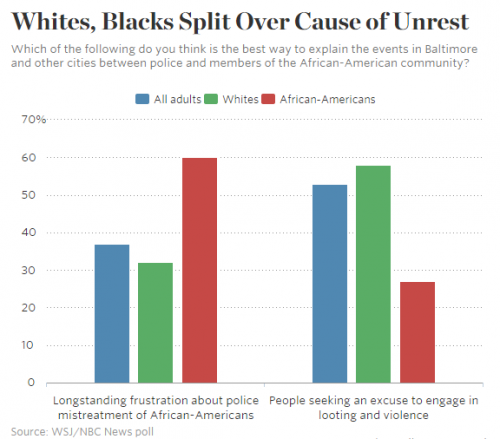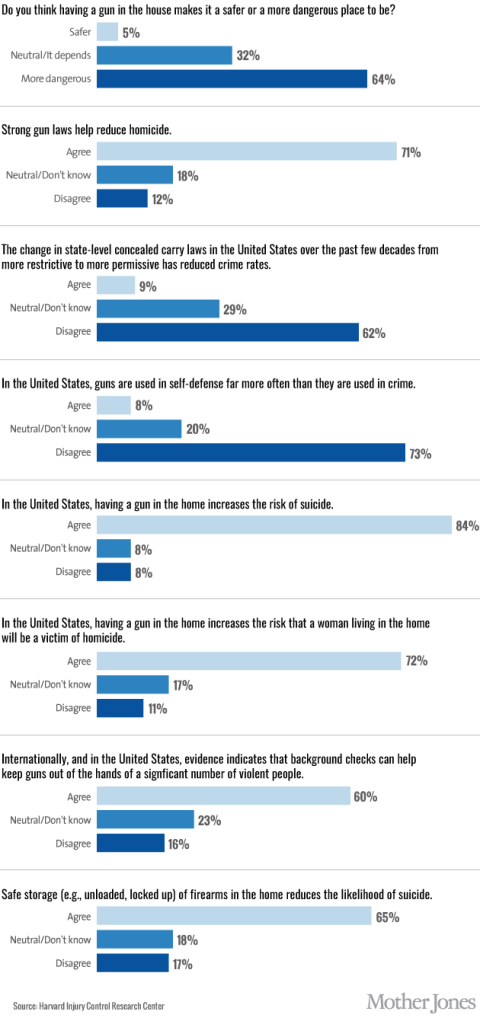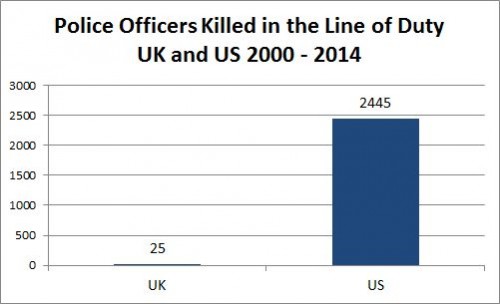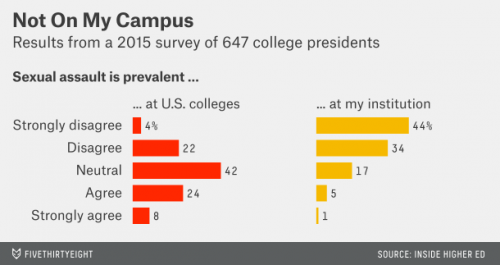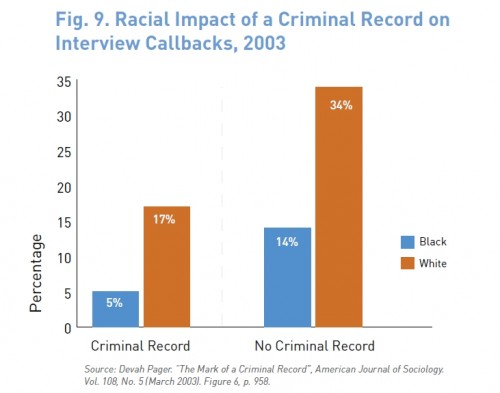On average, white and black Americans have different ideas as to what’s behind the recent unrest in Ferguson and Baltimore. A Wall Street Journal/NBC poll of 508 adults found that nearly two-thirds of African Americans felt that the unrest reflected “long-standing frustrations about police mistreatment of African Americans,” compared to less than one-third of whites.
In contrast, among whites, 58% believed that African Americans were just looking for an “excuse to engage in looting and violence.” A quarter of black respondents thought the same.
Though they may see it differently, almost everyone expects the uprising to reach more cities over the summer.
Lisa Wade, PhD is an Associate Professor at Tulane University. She is the author of American Hookup, a book about college sexual culture; a textbook about gender; and a forthcoming introductory text: Terrible Magnificent Sociology. You can follow her on Twitter and Instagram.

